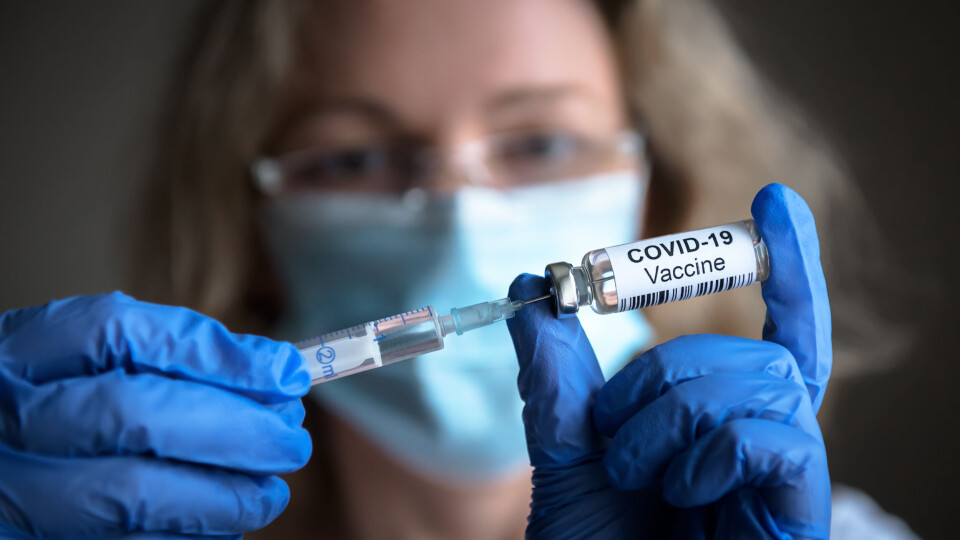-
Residency card drop-in clinics available in Nice
The prefecture's Point d’information étrangers helps people with their application without an appointment
-
Closest ski resort to Paris for sale
La Loge des Gardes, a family-friendly resort, offers year-round activities and is seeking new ownership
-
French inventor develops new air purifier after daughter’s asthma attack
Particles in the air attach themselves to ionised air from the machine causing them to fall to the ground
Why France is hesitating over fourth Covid vaccine dose
The extra dose is currently only offered to the immunosuppressed

France has not yet confirmed whether or not vulnerable groups such as the elderly will be offered a fourth Covid vaccine dose as well as immunosuppressed patients.
The World Health Organisation warned earlier this month that: “A vaccination strategy based on repeated booster doses of the original vaccine composition is unlikely to be appropriate or sustainable” and this view has been seconded by the European Medicines Agency.
Read more:Repeated Covid booster doses will not end the pandemic, says WHO
However, French government ministers are still regularly asked whether an additional dose will be rolled out in France.
‘Solid scientific data’ is needed
This week, Health Minister Olivier Véran responded: “If it is in the interests of protecting the most vulnerable, we will do it and will explain why, as we have done since the beginning of the pandemic.
“If, on the other hand, we see that it is not necessary, we will not do it. The scientists will have to tell us.”
Jean-François Delfraissy, the president of the Conseil scientifique, the official medical body set up by France to advise on Covid developments, also said: “The Covid vaccine is great at preventing serious illness, but its usefulness becomes limited over time.
“Will older people, like me, need a fourth dose? We do not know.
“We need solid scientific data to be able to say” whether or not another dose should be rolled out.”
The government has requested advice from health service quality regulator, the Haute Autorité de santé (HAS), but it has not yet published its recommendations.
‘No data to justify this measure’ at present
Elisabeth Bouvet, the HAS’ president of vaccination procedure has said that she is “not at all sure that we will need a fourth dose” at some point in the future.
“We do not have any data, at the moment, which would enable us to justify this measure.”
The Conseil d’orientation de la stratégie vaccinale (COSV) published a report on January 19, which expressed doubts about the need for a fourth dose for the elderly or people whose health conditions increase their risk of becoming very ill with Covid.
“For the moment, we have no consistent information to suggest that the protection against serious forms of the virus provided by a third vaccine dose diminishes over time,” it said.
UK study shows protection is still high ten weeks after booster
Indeed, a recent UK study has suggested that 10 weeks after the injection of a first booster, protection against serious forms of the virus remains at 89%.
The COSV also reported that although a fourth dose would help to protect people against serious illness, it would not necessarily prevent them from contracting the virus.
“In the current context of a very significant spread of the Omicron variant, the population could have developed sufficient protection to fight against future variants, which would reduce the need for a second booster dose for the whole population,” it adds.
“For the moment we cannot really see what this fourth dose would bring,” the Conseil’s president Alain Fischer told Le Monde.
“It would increase antibody levels. But what would the intensity [of this response] be in reality, what effect would it have on serious forms of the virus and for how long? We don’t know.
“As for protection against infection by Omicron, a booster improves it, but the effect is limited. So we are not expecting miracles from the fourth dose.
“The introduction of a second booster dose could be counterproductive with regards to the vaccination campaign which is currently underway,” the COSV’s report adds.
“Indeed, a measure like this could be interpreted as a sign of the ineffectiveness of the vaccines and so could risk discouraging [the population] from getting vaccinated.”
However, this judgement could change as the Covid situation evolves.
A fourth dose could be recommended for people over 80 if “the slight rise in the number of hospitalisations, which began in December, continued over the coming weeks.”
Only people who are immunosuppressed
Currently, a fourth dose in France is only offered to people who are severely immunosuppressed, equating to around 250,000-300,000 patients.
For this group, the additional vaccination forms part of a complete vaccination schedule.
People are also offered a fourth dose in Denmark if they are classed as ‘vulnerable’ and in Spain if they are classed as ‘very vulnerable’.
Israel’s vaccine advisory panel has just recommended a fourth dose for all adults, after the additional dose was offered to over-60s, healthcare workers and immunosuppressed people.
Research has suggested that this vaccination doubled protection against symptomatic Covid, and boosted protection against serious forms of the virus three- to fivefold, when compared to three doses.
Stéphane Bancel, CEO of Moderna, has said that he believes a fourth dose to be necessary and has claimed that his company would be able to produce a yearly Covid, flu and respiratory syncytial virus vaccine, which could perhaps be launched in autumn 2023.
Related articles
‘Fully vaccinated’: does meaning vary in France depending on context?
Economists heap praise on France for its Covid tactics
France’s vaccine pass launches: How and where is it being used?
























